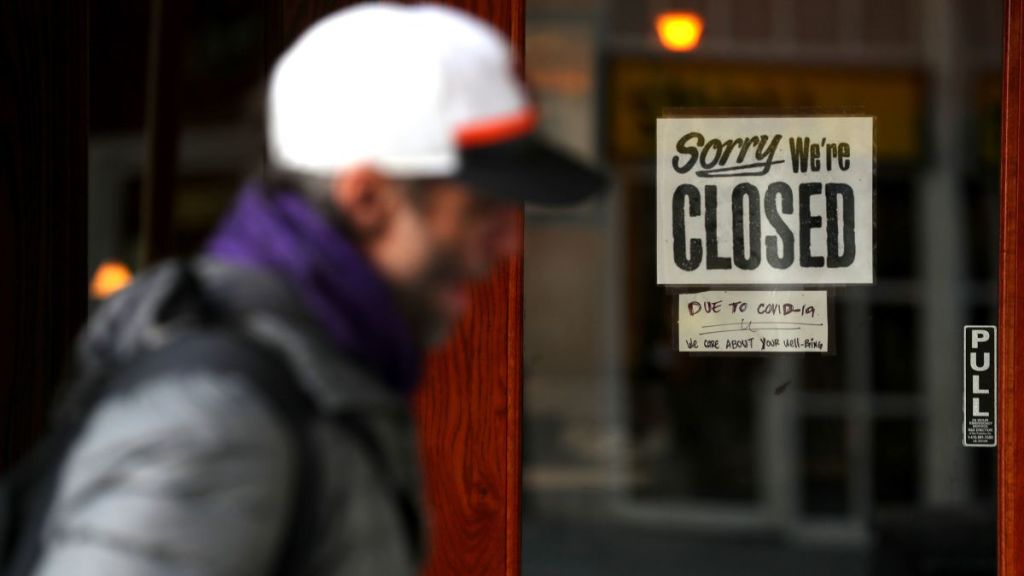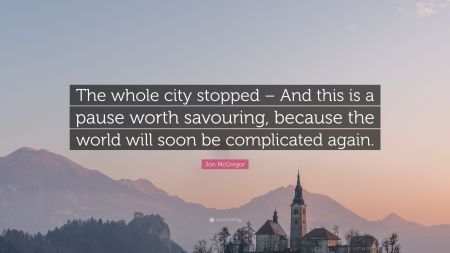
Another severe lockdown in the depths of winter, full of confusion, anger, worry and concern for all cohorts of society that are being severely damaged by a cruel disease that doesn’t really care how we feel about it – it’s just quite happy to have new homes to visit, while we can’t !
This leaves us facing into six weeks of varying degrees of misery, depending on your circumstances, so it better be damn worth it and deliver a result that will allow people to recover both their lives and livelihoods when it is over.
I feel metaphorically speaking we have all had the Covid virus (In saying that I am not belittling anyone who has suffered directly as a result of having the disease).
To make sure these six weeks are as effective as they can possibly be (does anyone want 12 weeks??) it’s vital that everything that can be done, is done right now and for me besides Irish people adhering to the rules and the spirit of the rules, there are three stand out measures that are an absolute must:
- The island of Ireland must work together
- People coming into Ireland cannot add to the spread that is already here
- The right decision needs to be made about schools
Getting these things wrong will totally diminish the benefits from the six weeks of hardship.
“But that’s not possible” is what I hear people say when we talk about the island of Ireland. This is bullshit and we need to call it out – we have a common problem that deserves a common solution, and the cooperation that happened with foot and mouth disease needs to happen again.
People coming into the country should be tested before they get on any plane or boat and shouldn’t be allowed to wander freely in Ireland until we know they are not carrying a virus. Quick tests that are in other jurisdictions would make a big difference.
The final measure is possibly the very contentious one, as it really effects us because we have a lot of young and old students and their families, all with a vested interest in their education and their health.
Hey teacher leave those kids at home!
I would love to believe that our precious children, young and old, are largely immune from this horrible disease and play no part in it’s spread to others in the general community.
On that basis they could safely go to school, continue with their development and in truth allow their parents to get on uninterrupted with their work and lives – That would be a fantastic scenario, one that is great for society but is it the case?
I for one, don’t believe it..
I know from my own Twitter account and from texts and messages that I have received from people including a national journalist, I am getting lots of vitriol for daring to suggest that the reopening of schools followed by colleges could be a contributing factor to the sudden spike in cases that happened in Ireland in August and has continued and has been replicated across Europe.
My hunch was based purely on the story of the pandemic timeline (very few cases, schools open and then cases spiked – this was before wet pubs opened) in Ireland. I’m sure people returning from overseas holidays (Green or non-Green list countries – flights continued to and from both) was also a contributing factor but that would have been a gradual thing on the timeline.
With the schools you can pinpoint the actual date they reopened and the timeline of the cases at that time.
I hear the arguments against my position:
But…young kids are not likely to get Covid and spread it?
But..older kids are more likely to get Covid and spread it but they are most unlikely to be sick from it?
But …colleges. They are adults who will hang out and party like we all did back in the day, so that’s a fairly straightforward argument.
But…the data from our test, track and trace system and the resulting published stats hasn’t been identifying schools as being a problem?
Maybe my hunch is totally wrong and the decision or choice by the government to keep schools open unlike in Northern Ireland is a justified one – lets think about it and see what the experts are saying and figure out what we know and don’t know?
So…
Do we know that young kids cannot get Covid? – we don’t
Do we know that young kids if they do contract Covid are most likely to be asymptomatic (just like many adults are)? – likely
Do we know that asymptomatic kids cannot pass Covid onto others? – definitely not
Older kids, teenagers will be more likely to contract Covid than younger kids, but will be more likely to be asymptomatic? – likely
At this point we need to ask ourselves a simple question..
Will asymptomatic kids (of all ages) who contract Covid pass it to others who then get sick, test positive and we NEVER know who the source was?
In my simple mind, that’s quite plausible and it stacks up my hunch about schools opening and the spike, but lets see what the professionals are saying about schools, children and young adults
In the U.S. this is what is being said:
Yes, children can get COVID-19..
Dr. Lisa Gwynn, an associate professor of clinical pediatrics and public health sciences at the Miller School of Medicine at the University of Miami, said that yes, children can get COVID-19.
However, according to Brian Labus, PhD, MPH, an assistant professor in the School of Public Health at the University of Nevada, Las Vegas, the infection rates in children are low.
“When children do get infected,” explained Labus, “they tend to have a very mild disease compared to adults.”
Gwynn said that children can transmit COVID-19 to adults.
She noted that children ages 10 and older are especially able to transmit the illness to the adults around them.
While there’s limited information regarding children younger than 10, the Centers for Disease Control and Prevention (CDC) released a report Trusted Source on September 18 indicating that younger children can transmit the virus to adults as well.
The report cited one case in which an 8-month-old child transmitted the SARS-CoV-2 virus, which causes COVID-19, to both parents. Another child at the same day care facility who contracted the virus was 8 years old.
Both children had mild signs and symptoms, including runny nose, fatigue, and fever. The report included information about 12 children who had developed COVID-19 at three different child care facilities.
Transmission, either confirmed or probable, was shown to have occurred to 46 people outside of the facilities, including one parent who had to be hospitalized. Also, two children who had confirmed COVID-19 but were asymptomatic were shown to have transmitted the disease to adults.
There was even a more concerning article that says
Asymptomatic children can spread coronavirus for weeks, study finds
New US studies show viral loads of the coronavirus are especially high among children and youths, who can unknowingly spread it for weeks.
The article went on to say:
A new, unsettling study on children and the coronavirus pandemic has just been published as countries around the world reopen kindergartens and school classrooms. The study’s findings are sure to further fuel already heated debates over the risk of infection in institutions of learning.
Doctors at the Children’s National Hospital in Washington, DC have found that infected children can spread the SARS-CoV-2 virus for weeks even though they themselves show no COVID-19 symptoms. That means that children with only mild symptoms, or none at all, can unknowingly infect people around them.
In an earlier study, researchers in Boston showed that children and youths they observed had surprisingly high viral loads.
This led to an inevitable question:
Are asymptomatic children spreading the virus?
It went on:
The new study, which was published on August 28 on the website of the medical journal JAMA Pediatrics, was conducted by Roberta L. DeBiasi and Meghan Delaney, who analyzed data from 91 children in 22 hospitals across South Korea. “Unlike in the US health system, those who test positive for COVID-19 in South Korea remain in the hospital until they have completely recovered from their infection,” says DeBiasi.
According to the study, roughly 22% of the children developed no symptoms throughout their infection, 20% began asymptomatic but later developed symptoms, and 58% tested symptomatic. The study also showed great differences in the length of time children remained symptomatic, ranging from three days to three weeks. One-fifth of the asymptomatic patients and roughly half of the symptomatic patients were still passing on the SARS-CoV-2 virus three weeks after initial infection — though this did not directly reflect their contagiousness.
The authors readily admit that there is still much to be learned about the role of children and youths in the spread of the coronavirus, and that their findings will further fuel that debate.
With our testing and tracing system would we even discover that an asymptomatic child (no temperature, cough etc) was the possible source for the spread of Covid in an outbreak – it’s impossible unless there was mass testing.
Moving away from the Korean data:
Researchers in Boston, meanwhile, found surprisingly high viral loads among the youngest patients they observed. For their study, they took nose and throat swabs from 49 children and youths under the age of 21. The study found far more SARS-CoV-2 virus presence among them than among adults being treated in intensive care units for COVID-19.
According to the Boston study, which was published on August 1 in the periodical The Journal of Pediatrics , scientists found far fewer ACE-2 receptors among smaller children than in youths and adults. Those receptors are thought to be SARS-CoV-2’s gateway into the body’s cells.
Read on:
They talk about tiny “superspreaders”:
The role of children and youths in the spread of the coronavirus has been hotly debated since the first infections were registered. One thing is clear, children and youths can infect others. It is also clear that infected children and youths often show few or no signs of being ill. And it is also just as clear — though most people prefer not to talk about this — that children and youths can also die or suffer lasting damage as the result of a COVID-19 infection.
That doesn’t automatically mean that all children and youths are potential “superspreaders,” driving infection rates around them. Still, children and youths — through kindergarten, school, friends and sports — often have far more social interaction than adults. The past few months have also shown that young people are just as likely as adults to ignore social distancing and hygiene rules if they are not compelled to do otherwise.
Amid a flood of returning vacationers, along with parties and crowded events, German infection rates are now the highest they have been since April. A great number of those testing positive for COVID-19 now are young, driving down the average age of infection to the lowest figure registered since the pandemic began.
Still, despite high viral loads and the ability to pass on the virus for weeks — even if a child is asymptomatic — young people can still act decisively to stop the spread of infection.
Centre of Disease Control
In a report by the CDC in Sept based on research, they arrived at the following conclusion:
To be sure, the best available evidence from countries that have reopened schools indicates that COVID-19 poses low risks to school-aged children – at least in areas with low community transmission. That said, the body of evidence is growing that children of all ages are susceptible to SARS-CoV-2 infection (3-7) and, contrary to early reports (11, 12), might play a role in transmission (7, 13, 14).
World Health Organisation
In a report by the WHO in September they also addressed the role of schools:
The role of children in transmission is not yet fully understood. To date, few outbreaks involving children or schools have been reported. However, the small number of outbreaks reported among teaching or associated staff to date suggests that spread of COVID-19 within educational settings may be limited.
As children generally have milder illness and fewer symptoms, cases may sometimes go unnoticed. Importantly, early data from studies suggest that infection rates among teenagers may be higher than in younger children.
Closer to home
Closer to home Dr. Tomás Ryan, Assistant Professor at the School of Biochemistry & Immunology, Trinity College Dublin chats with Eamon Dunphy on his podcast – he welcomes the six week lock down as he believes it is necessary to correct the course of the disease, but he does feel that schools should be part of this as we should be doing everything to make this period work.
He also speaks about the need for cooperation with the North and controls with those visiting Ireland from abroad.
He is also a big advocate for a ZeroCovid approach just like in New Zealand, who are now enjoying international rugby matches in packed stadiums – that sounds nice!
Click here to listen.
Conclusion?
While all of this information is confusing and inconclusive, none of it has eased my concern about schools and while we are taking brutal action against other areas of society then we should be absolutely sure that schools are not part of the problem.
- Coordinate with the North
- Carefully control visitors to Ireland
- Close the schools
Lets’ get to zero and start living again,
What do you think?
Greg
Greg Canty is a Partner of Fuzion Communications, a full service Marketing, PR, Graphic Design and Digital Marketing agency with offices in Dublin and Cork, Ireland









